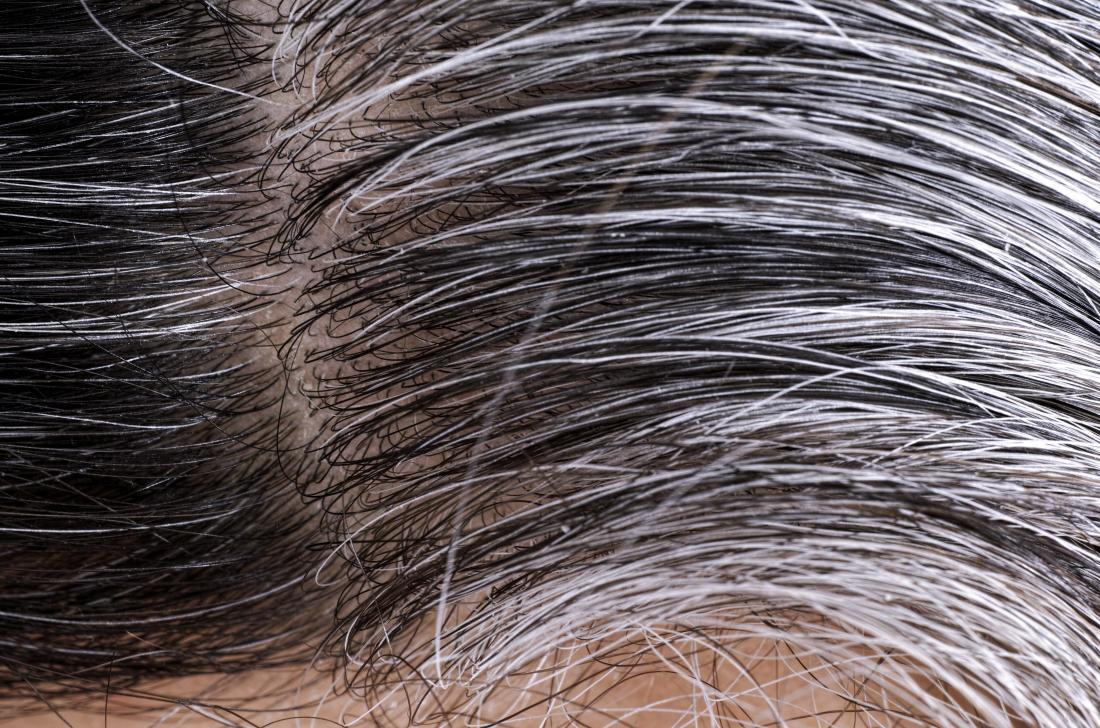If you or someone you know is troubled by snoring, there are several home remedies that may help alleviate the issue. While these remedies can be effective for mild snoring, it’s important to note that chronic or severe snoring may require medical intervention. Here are some home remedies you can try:
Change sleeping positions
Changing your sleeping position can be an effective home remedy for reducing snoring. Sleeping on your back often contributes to snoring because it allows the muscles in your throat and tongue to relax, causing the airway to become partially blocked. Here are a few tips on how to change your sleeping position to reduce snoring:
- Sleep on your side: When you sleep on your side, gravity helps to keep your airway open, reducing the likelihood of snoring. Try using pillows to support your body and keep you in a side-sleeping position. You can place a pillow behind your back to prevent rolling onto your back during the night.
- Use a body pillow: If you find it challenging to maintain a side-sleeping position, consider using a body pillow. A body pillow is a long pillow that you can hug and position against your back. This will help prevent you from rolling onto your back while you sleep.
- Sew a tennis ball onto the back of your pajamas: To discourage sleeping on your back, you can sew a tennis ball onto the back of your pajama top or t-shirt. This will make it uncomfortable to lie on your back during the night, prompting you to stay on your side.
- Elevate the head of your bed: Raising the head of your bed by a few inches can help open up your airway and reduce snoring. You can place bricks or blocks under the legs at the head of your bed to achieve the desired elevation. Alternatively, you can use an adjustable bed or a wedge-shaped pillow designed for elevating the upper body.
Remember, it may take some time to adjust to sleeping in a new position. Be patient and persistent with these changes, as they can take a while to show their full effect. If changing your sleeping position doesn’t significantly reduce your snoring or if you have other concerns, it’s advisable to consult a healthcare professional for further evaluation and guidance.
Also Read: WELLHEALTHORGANIC.COM:WEIGHT-LOSS-IN-MONSOON-THESE-5-MONSOON-FRUITS-CAN-HELP-YOU-LOSE-WEIGHT
Maintain a healthy weight
Maintaining a healthy weight can indeed be beneficial in reducing snoring. Excess weight, particularly around the neck area, can contribute to the narrowing of the air passages, leading to snoring. Here are some tips for maintaining a healthy weight to help reduce snoring:
- Eat a balanced diet: Focus on consuming a variety of nutritious foods, including fruits, vegetables, whole grains, lean proteins, and healthy fats. Avoid or limit the intake of processed foods, sugary snacks, and high-fat meals.
- Portion control: Be mindful of portion sizes to prevent overeating. Use smaller plates and pay attention to hunger and fullness cues.
- Regular physical activity: Engage in regular exercise to support weight management. Aim for at least 150 minutes of moderate-intensity aerobic activity or 75 minutes of vigorous-intensity activity per week. Incorporate activities you enjoy, such as walking, cycling, swimming, or dancing.
- Strength training: Include strength training exercises in your routine to build muscle mass. Increased muscle mass can boost your metabolism and help with weight management.
- Limit sugary beverages and alcohol: High-sugar drinks contribute to weight gain, and alcohol can relax the throat muscles, leading to increased snoring. Opt for water, herbal tea, or other low-calorie, non-alcoholic beverages.
- Monitor calorie intake: Keep track of your daily calorie intake to ensure you’re not consuming more calories than you need. This can be done through various mobile apps or food journals.
- Get enough sleep: Adequate sleep is crucial for weight management. Lack of sleep can disrupt hormonal balance, increasing appetite and cravings for unhealthy foods. Aim for 7-9 hours of quality sleep each night.
Remember, maintaining a healthy weight is a long-term goal that requires consistency and lifestyle changes. If you’re having difficulties managing your weight or have concerns about snoring, it’s always advisable to consult with a healthcare professional for personalized advice and guidance.
Avoid alcohol and sedatives
Avoiding alcohol and sedatives is another important home remedy for reducing snoring. Alcohol and sedatives have a relaxing effect on the muscles in the throat, which can increase the likelihood of snoring. Here’s what you can do:
- Limit alcohol consumption: Avoid drinking alcohol, especially in the hours leading up to bedtime. Alcohol relaxes the muscles in your throat and can lead to increased snoring. If you do choose to drink, do so in moderation and try to finish your last drink at least a few hours before going to bed.
- Be cautious with sedatives: Sedatives, such as sleeping pills or certain medications, can also relax the throat muscles and contribute to snoring. If you’re taking any sedative medications and experiencing snoring as a side effect, talk to your doctor about potential alternatives or adjustments to your dosage.
- Opt for herbal tea: Instead of consuming alcohol or sedatives, consider having a calming herbal tea before bed. Chamomile, lavender, and valerian root teas are known for their relaxation properties and can promote a good night’s sleep without the snoring side effects.
- Create a relaxing bedtime routine: Establishing a calming routine before bed can help prepare your body and mind for sleep. This can include activities such as taking a warm bath, reading a book, practicing relaxation techniques like deep breathing or meditation, or listening to soothing music.
- Stay hydrated: Drinking plenty of water throughout the day can help keep your airways lubricated and reduce the chances of snoring. However, avoid excessive fluid intake right before bedtime to prevent nighttime bathroom trips that could disrupt your sleep.
By avoiding alcohol and sedatives, you can minimize muscle relaxation in your throat and potentially reduce snoring. If snoring persists despite these lifestyle changes, it’s recommended to consult a healthcare professional for further evaluation and guidance.
Also Read: WELLHEALTHORGANIC.COM:AMAZING-BEAUTY-TIPS-OF-ICE-CUBE-WILL-MAKE-YOU-BEAUTIFUL-AND-YOUNG
Keep nasal passages clear
Keeping your nasal passages clear can help alleviate snoring, especially if nasal congestion is contributing to the issue. Here are some home remedies to help maintain clear nasal passages:
- Nasal irrigation: Use a saline solution or a neti pot to rinse your nasal passages. This helps flush out excess mucus, allergens, and irritants, reducing congestion and improving airflow. Follow the instructions provided with the nasal irrigation device or consult a healthcare professional for guidance.
- Steam inhalation: Inhaling steam can help moisturize and open up your nasal passages. Fill a bowl with hot water, place a towel over your head, and lean over the bowl to inhale the steam. Be cautious to avoid getting too close to the hot water to prevent burns.
- Use a humidifier: Dry air can irritate the nasal passages and lead to congestion. Using a humidifier in your bedroom can add moisture to the air, helping to keep your nasal passages clear. Clean the humidifier regularly to prevent the growth of mold or bacteria.
- Stay hydrated: Drinking enough water throughout the day helps thin the mucus and prevents dehydration, which can contribute to nasal congestion. Aim for at least 8 glasses of water per day, or more if needed.
- Avoid irritants: Minimize exposure to irritants such as cigarette smoke, strong chemicals, and allergens that can trigger nasal congestion. If you have allergies, try to identify and avoid the allergens that affect you.
- Elevate your head while sleeping: Use an extra pillow or elevate the head of your bed to keep your head slightly elevated while sleeping. This can help prevent nasal congestion and improve breathing.
- Over-the-counter remedies: Nasal sprays or decongestants can provide temporary relief from nasal congestion. However, it’s important to follow the instructions and avoid long-term or excessive use, as it can lead to dependency or rebound congestion.
If your snoring persists despite these measures or if you have chronic nasal congestion, it’s advisable to consult a healthcare professional for further evaluation and guidance. They can assess the underlying causes of your nasal congestion and provide appropriate treatment options.
Elevate your head
Elevating your head while sleeping can be an effective home remedy for reducing snoring, especially if it is caused by the relaxation of throat muscles and the subsequent obstruction of the airway. Here’s how you can elevate your head:
- Pillows: Use extra pillows to prop up your head and upper body. This can help keep your airway open and reduce the likelihood of snoring. You can stack pillows behind your head or use a specially designed wedge-shaped pillow that provides elevation and support.
- Adjustable bed: If you have an adjustable bed base, you can raise the head section to achieve the desired elevation. This allows you to find the most comfortable position that helps reduce snoring.
- Bed risers: Another option is to use bed risers or blocks to elevate the head of your bed. Place them under the legs at the head of the bed to create an incline. This method can be useful if you prefer a consistent elevation throughout the night.
- Adjustable pillows: Consider using pillows that are specifically designed to provide elevation and support for the head and neck. These pillows often have a contoured shape or built-in neck support to promote proper alignment and open airways.
Remember, the goal of elevating your head is to keep your airway clear and allow for better airflow. It may take some time to adjust to sleeping in an elevated position, so be patient and experiment with different methods to find what works best for you. If snoring persists or worsens despite elevating your head, it’s advisable to consult a healthcare professional for further evaluation and guidance.
Use a humidifier
Using a humidifier can indeed help alleviate snoring, particularly if dry air is contributing to nasal congestion and throat irritation. Here’s how a humidifier can be beneficial and how to use it effectively:
- Moisturizes the air: A humidifier adds moisture to the air, which can help prevent dryness in the nasal passages and throat. Dry air can lead to congestion and irritation, making snoring more likely. By keeping the air adequately moisturized, a humidifier can help reduce these symptoms.
- Reduces nasal congestion: Dry air can cause nasal passages to become dry and congested, leading to snoring. The added moisture from a humidifier can help alleviate congestion and promote easier breathing through the nose, reducing the chances of snoring.
- Types of humidifiers: There are various types of humidifiers available, including cool mist and warm mist humidifiers. Cool mist humidifiers are generally recommended as they are safer, especially around children and pets. Choose a humidifier that suits your preferences and follow the manufacturer’s instructions for usage and maintenance.
- Proper placement: Place the humidifier in your bedroom or the room where you sleep. Position it at a safe distance from the bed to avoid any direct moisture exposure. Aim to keep the humidity level between 30% and 50% for optimal comfort and to prevent excessive moisture in the air.
- Clean regularly: Clean and maintain the humidifier according to the manufacturer’s instructions to prevent the growth of mold, bacteria, and other contaminants. Regular cleaning helps ensure that you’re breathing in clean, healthy air.
- Monitor humidity levels: Some humidifiers come with built-in humidity sensors or hygrometers to measure the humidity levels in the room. If your humidifier doesn’t have this feature, you can purchase a separate hygrometer to monitor humidity levels and make adjustments accordingly.
Remember, while a humidifier can be beneficial in reducing snoring caused by dry air, it may not address other underlying causes of snoring. If snoring persists despite using a humidifier or if you have other concerns, it’s advisable to consult a healthcare professional for further evaluation and guidance.
Also Read: WELLHEALTHORGANIC.COM:VITAMIN-E-HEALTH-BENEFITS-AND-NUTRITIONAL-SOURCES
Try throat exercises
Throat exercises can be a helpful home remedy for reducing snoring. These exercises aim to strengthen the muscles in the throat and tongue, which can help keep the airway open during sleep. Here are a few throat exercises you can try:
Tongue exercises:
- Press your tongue against the roof of your mouth and hold for a few seconds, then release. Repeat this several times.
- Slide your tongue backward, touching the back of your throat. Repeat this motion several times.
- Push your tongue against the inside of your cheek, alternating between each side. Do this several times.
Jaw exercises:
- Open your mouth as wide as possible and hold it for a few seconds, then close it slowly. Repeat this several times.
- Move your jaw to the right side, hold for a few seconds, and then move it to the left side. Repeat this motion several times.
Throat exercises:
- Say each vowel out loud (A, E, I, O, U) with exaggerated pronunciation. Repeat this exercise several times.
- Repeat the phrase “The lips, the teeth, the tip of the tongue” multiple times, enunciating each word clearly.
- Singing exercises, such as humming or singing scales, can also help strengthen the muscles in your throat.
Perform these exercises consistently on a daily basis to see potential improvements in snoring. It’s important to note that results may vary, and throat exercises may not work for everyone, especially if snoring is caused by other underlying factors such as sleep apnea. If your snoring persists or worsens despite trying these exercises, it’s advisable to consult a healthcare professional for further evaluation and guidance.
Maintain a regular sleep schedule
Maintaining a regular sleep schedule is an important home remedy for reducing snoring and promoting overall sleep quality. Disruptions to your sleep patterns can contribute to snoring by affecting the relaxation of throat muscles and causing inconsistent breathing patterns. Here’s how you can establish a regular sleep schedule:
- Set a consistent bedtime: Determine a specific time when you want to go to bed each night and stick to it as closely as possible. Choose a time that allows you to get the recommended amount of sleep for your age and needs (typically 7-9 hours for adults).
- Wake up at the same time every day: Try to wake up at the same time every morning, even on weekends or days off. This helps regulate your body’s internal clock and establish a consistent sleep-wake cycle.
- Create a bedtime routine: Establish a relaxing routine before bed to signal to your body that it’s time to wind down. This can include activities like taking a warm bath, reading a book, practicing relaxation techniques, or listening to calming music.
- Create a sleep-friendly environment: Make your bedroom conducive to sleep by keeping it dark, quiet, and at a comfortable temperature. Use curtains or blinds to block out light, wear earplugs or use white noise machines to mask disruptive sounds, and set the thermostat to a temperature that promotes comfortable sleep.
- Limit exposure to screens before bed: The blue light emitted by electronic devices like smartphones, tablets, and computers can interfere with the production of melatonin, a hormone that regulates sleep. Try to avoid using screens at least an hour before bed to allow your body to naturally wind down.
- Avoid stimulating substances: Limit or avoid the consumption of caffeine, nicotine, and heavy meals close to bedtime, as they can interfere with your ability to fall asleep and stay asleep.
By maintaining a regular sleep schedule, you can help regulate your body’s natural sleep-wake cycle, promote better sleep quality, and potentially reduce snoring. If snoring persists despite these measures or if you have other concerns about your sleep, it’s advisable to consult a healthcare professional for further evaluation and guidance.
Conclusion
In conclusion, there are several home remedies you can try to deal with snoring. While these remedies may not work for everyone, they can be effective in reducing snoring for many individuals. Here’s a summary of the home remedies discussed:
- Change sleeping positions: Sleeping on your side instead of your back can help keep the airway open and reduce snoring.
- Maintain a healthy weight: Excess weight, especially around the neck, can contribute to snoring. By maintaining a healthy weight through proper diet and exercise, you can reduce snoring.
- Avoid alcohol and sedatives: Alcohol and sedatives relax the throat muscles, leading to increased snoring. Avoiding or minimizing their consumption can help reduce snoring.
- Keep nasal passages clear: Use nasal irrigation, steam inhalation, and a humidifier to moisturize and clear the nasal passages, reducing congestion and snoring.
- Elevate your head: Use extra pillows, an adjustable bed, or bed risers to elevate your head while sleeping, promoting better airflow and reducing snoring.
- Perform throat exercises: Tongue, jaw, and throat exercises can strengthen the muscles in your throat, potentially reducing snoring.
Maintain a regular sleep schedule: Establish a consistent bedtime and wake-up time, create a bedtime routine, and create a sleep-friendly environment to promote better sleep and reduce snoring.
It’s important to note that snoring can be caused by various factors, and these home remedies may not work for everyone. If snoring persists or is accompanied by other concerning symptoms, it’s recommended to consult a healthcare professional for further evaluation and guidance.
FAQ
Q: Are these home remedies effective for everyone who snores?
A: Home remedies can be effective for many individuals, but their effectiveness may vary depending on the underlying cause of snoring. It’s important to remember that snoring can have various causes, including structural issues, sleep apnea, allergies, and more. While home remedies can provide relief for some individuals, it’s advisable to consult a healthcare professional if snoring persists or is accompanied by other symptoms.
Q: Can these home remedies completely eliminate snoring?
A: Home remedies may help reduce snoring in many cases, but they may not completely eliminate it, especially if the underlying cause is more complex, such as sleep apnea. For severe or chronic snoring, it’s important to seek a proper diagnosis from a healthcare professional who can provide appropriate treatment options.
Q: How long does it take for these home remedies to show results?
A: The time it takes to see results from home remedies can vary from person to person. Some individuals may experience improvement in their snoring after implementing these remedies for a few days or weeks, while others may require more time. Consistency and adherence to the remedies are key. If snoring persists or worsens over an extended period, it’s advisable to consult a healthcare professional.
Q: Are there any potential side effects of these home remedies?
A: The home remedies discussed are generally safe, but individual responses may vary. It’s important to follow the instructions and guidelines for each remedy. For example, using nasal irrigation improperly can cause discomfort or infections. Additionally, some individuals may experience temporary discomfort or muscle soreness when performing throat exercises. If you have any concerns or experience adverse effects, it’s best to consult a healthcare professional.
Q: Can children use these home remedies for snoring?
A: Some of these home remedies, such as maintaining a healthy weight, keeping nasal passages clear, and establishing a regular sleep schedule, can be appropriate for children. However, it’s important to consult with a pediatrician or healthcare professional before implementing any remedies, especially for children. They can provide guidance based on the child’s age, health condition, and specific needs.






















